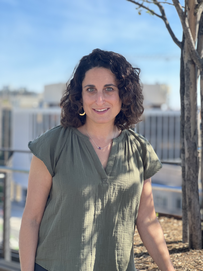The more I’ve attended family education events, the more convinced I’ve become that most schools’ programs aren’t actually designed for adult learning. Sarah Hanawald, our Senior Director, Association for Academic Leaders, says that best practices in adult learning direct educators to include practical applications for new concepts and information. We’ve moved beyond “the sage on the stage” in our classrooms--so why are so many schools still teaching parents and guardians this way?
As adults, we recognize the feeling of sitting in a classroom and listening to an expert. That familiarity is inherently reassuring. Whether it’s an author or a local professional, experts have the star power to bring parents and guardians to school in the evening. One challenge arises, however, when schools locate the expertise about children and adolescents outside of their school community. This is a missed opportunity for a school to demonstrate their deep well of experience with the social, emotional, and cognitive experiences of their students specifically. When education for parents and guardians centers on hiring outside experts, it reinforces a framework that contributes to anxiety. The overload of information generated by social media, online sources, podcasts, and more has created the sense that it’s impossible for any person to know all they need to know in order to raise a “successful” child. Family education event question-and-answer sessions run the risk of being performative (the humblebrag can be raised to an art form in these exchanges) which can create a culture where families with students experiencing challenges feel like outliers. A shift to a skills-based approach to family education can focus attention on the realities of raising children and adolescents, rather than on parents’ and guardians’ anxieties. That’s because this approach is based on a growth mindset, which sees students as constantly evolving and changing, rather than a fixed mindset which locks both children and their parents and guardians into “successful” or “unsuccessful” roles. For example, take the discussions of resilience common in many schools and families. When an expert describes the qualities of a resilient adolescent, they’re contributing to the sense that some students are inherently resilient and others aren’t. When a presenter, instead, describes specific practices and approaches that build resilience in young people, there’s a way for every parent or guardian to implement the strategy, no matter where their student falls on the resilience spectrum. A skills-focused approach makes it clear that a singular standard against which parents and guardians can measure their children is, in fact, a fallacy. A skills-based approach provides adults with actionable, real-world frameworks, which means that family education can make a difference in the lived experiences of families. When that instruction can be delivered by a person in your community, you help parents and guardians trust your experience and empathy. All learners acquire new information most effectively when they feel connected to their instructor, so bringing family education in-house provides the opportunity to take advantage of the trust your families feel in your teacher-leaders and counselors, making it more likely for parents and guardians to implement their learning. Rethinking family education can shift the understanding of child-rearing as something that should be professionalized and optimized by experts, into an alternative framework that sees adults, adolescents, and children as part of a web of relationships and resources that can grow and respond to needs--a framework that all communities need to help young people thrive. *Many schools still use the term “parent education” to describe programming for parents, guardians, and caregivers. At One Schoolhouse, we’ve chosen the term “family education” to acknowledge the wide range of family and care structures in school communities.
0 Comments
Leave a Reply. |
Don't miss our weekly blog posts by joining our newsletter mailing list below:AuthorsBrad Rathgeber (he/him/his) Archives
July 2024
Categories |


 RSS Feed
RSS Feed